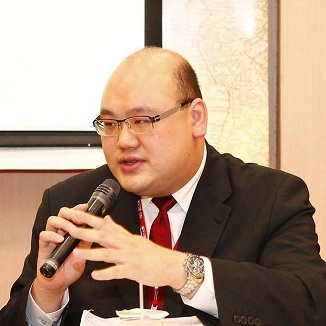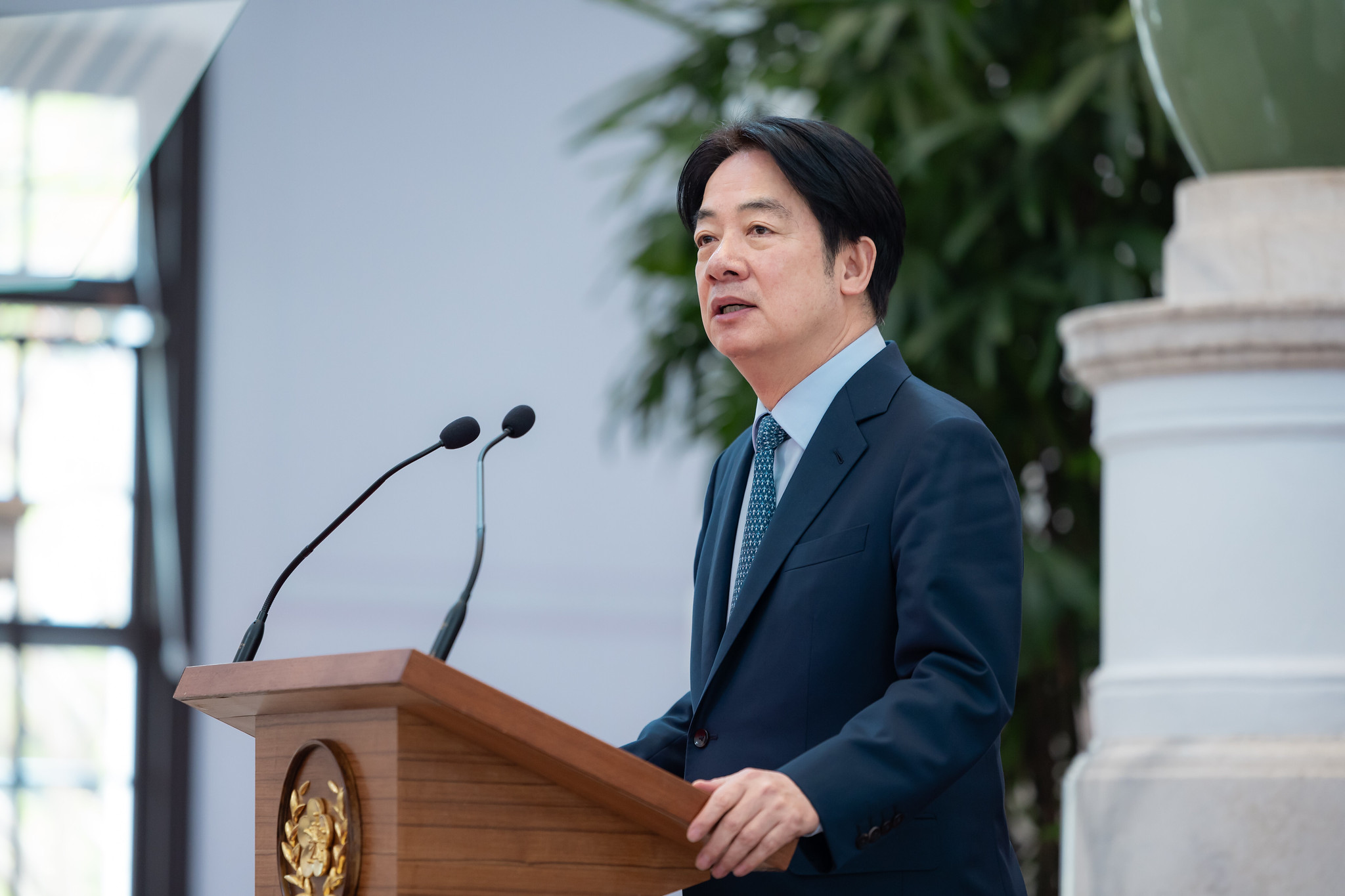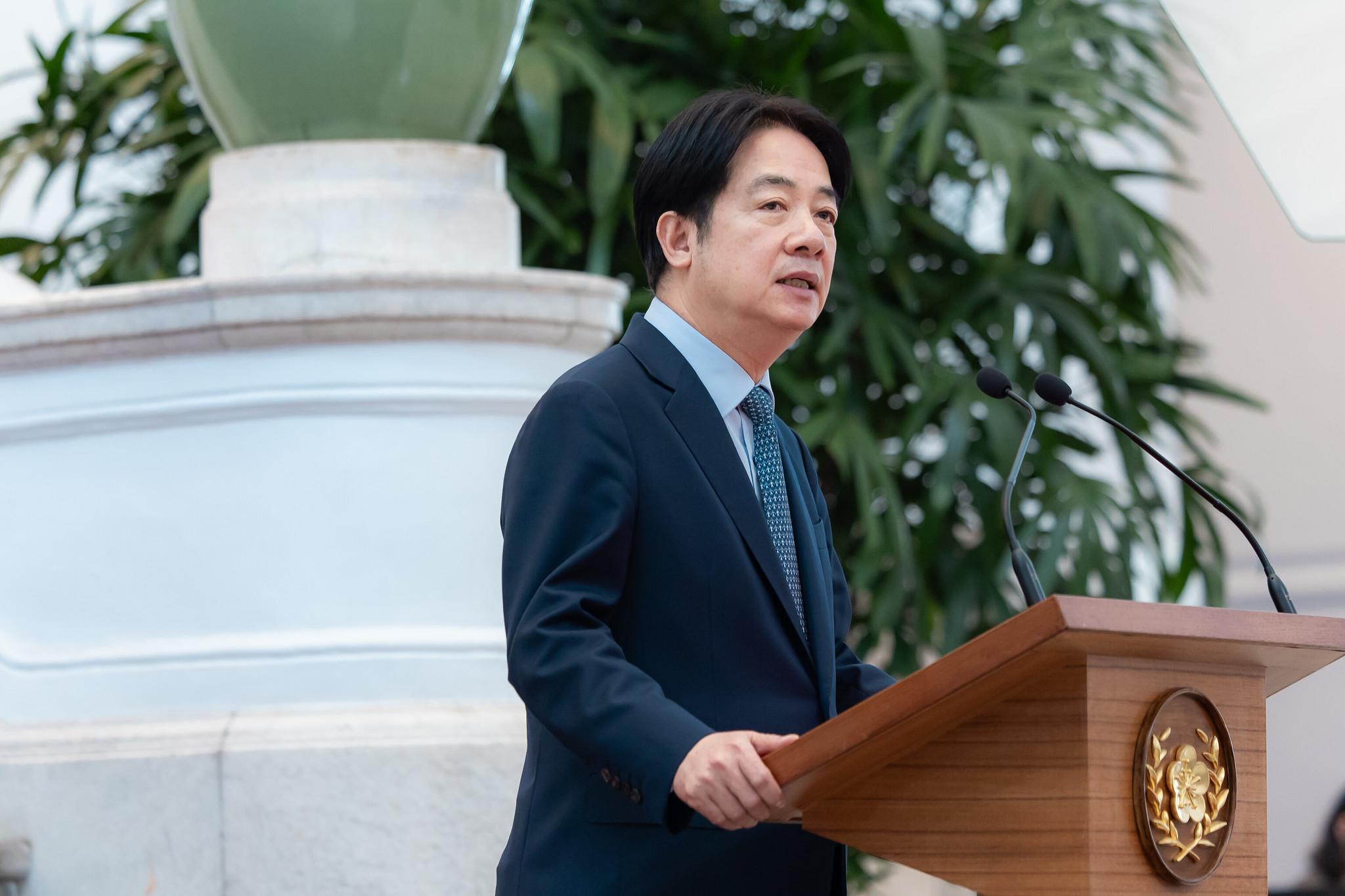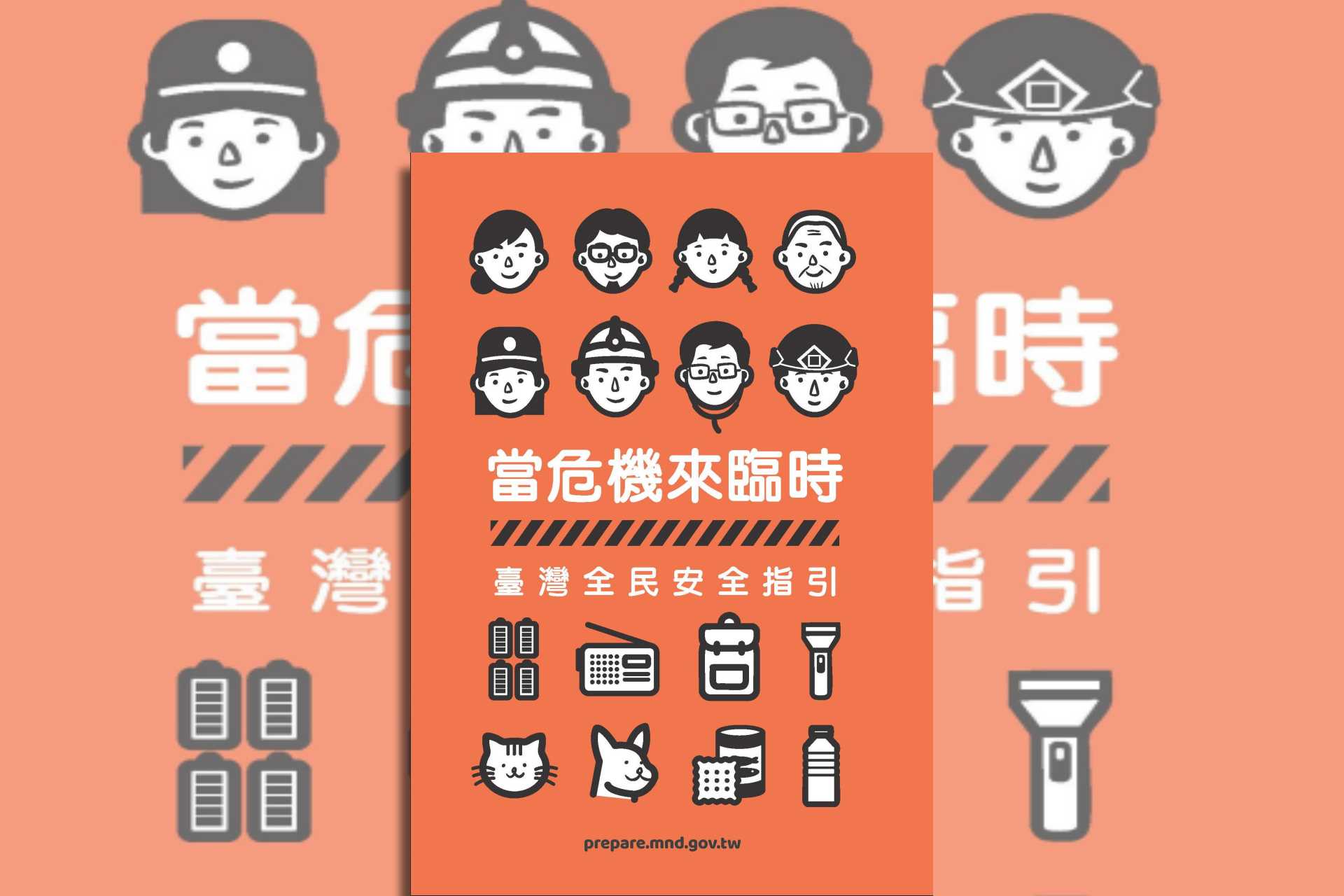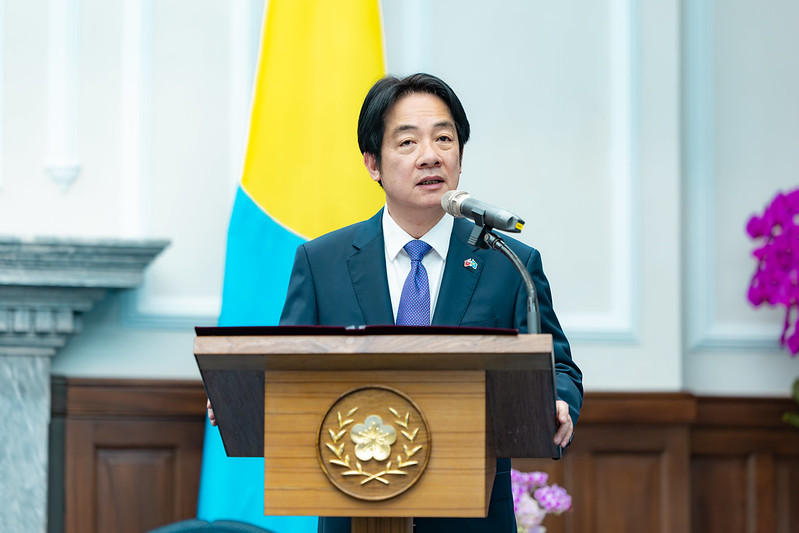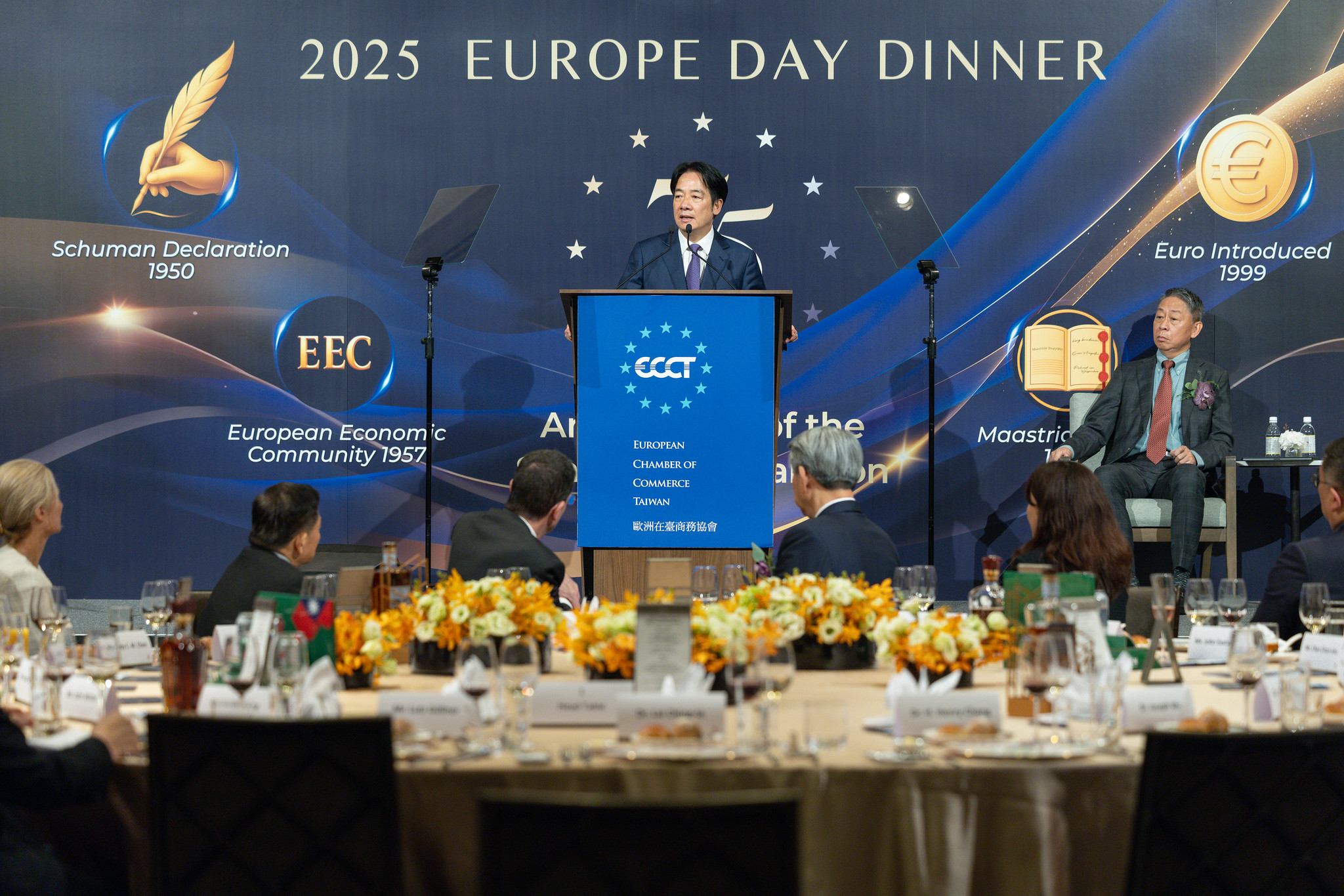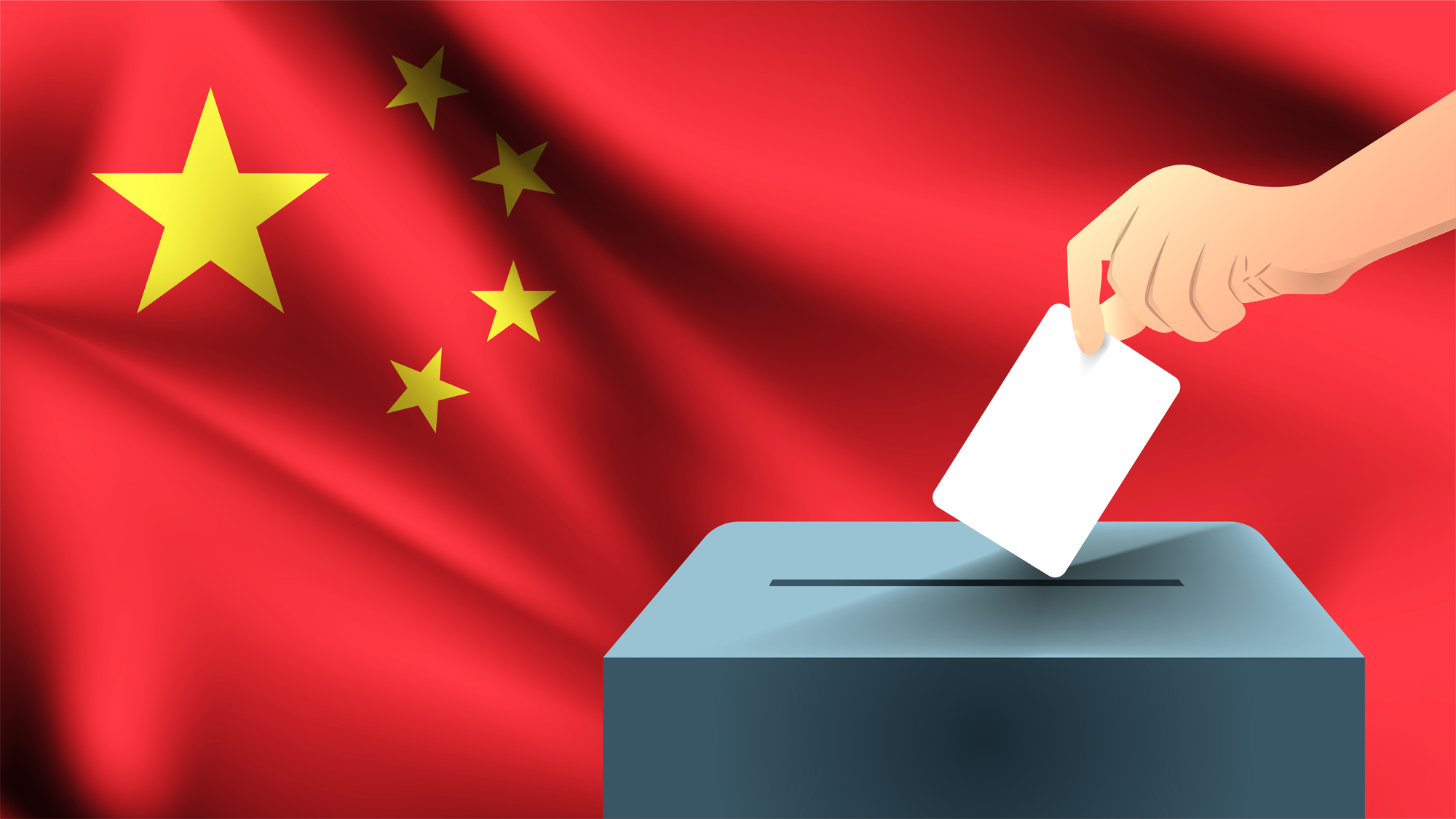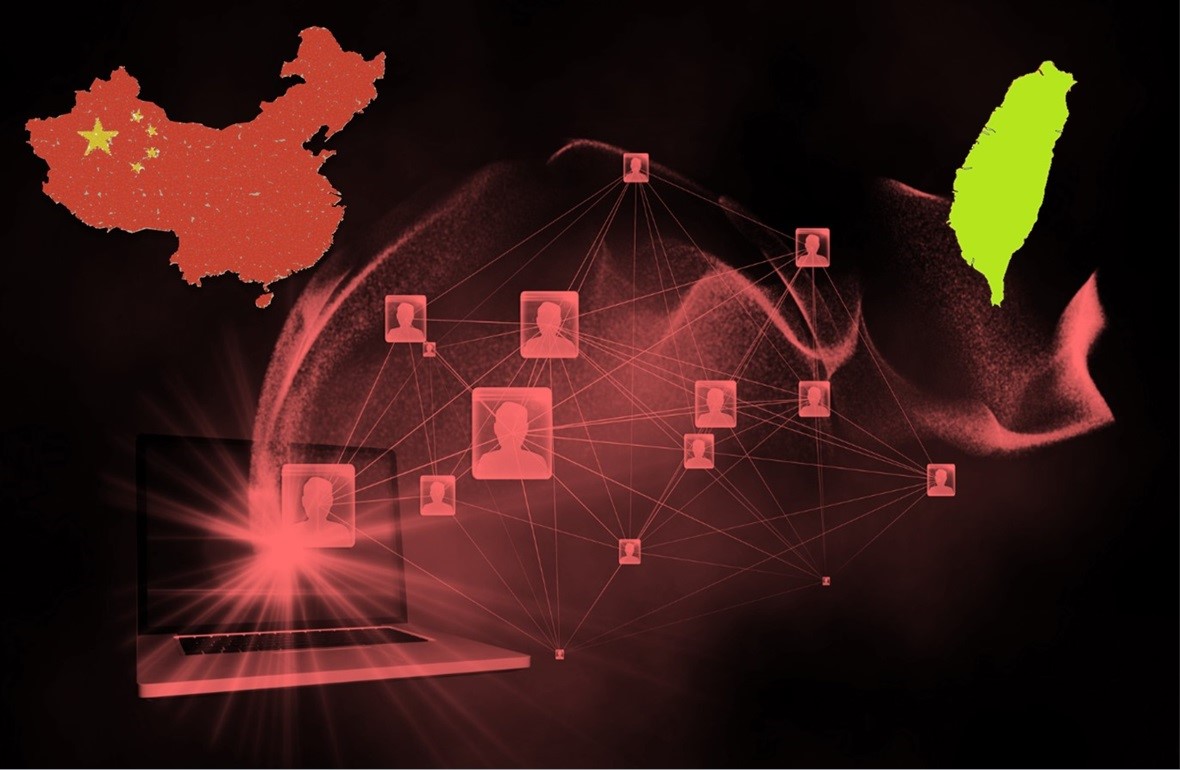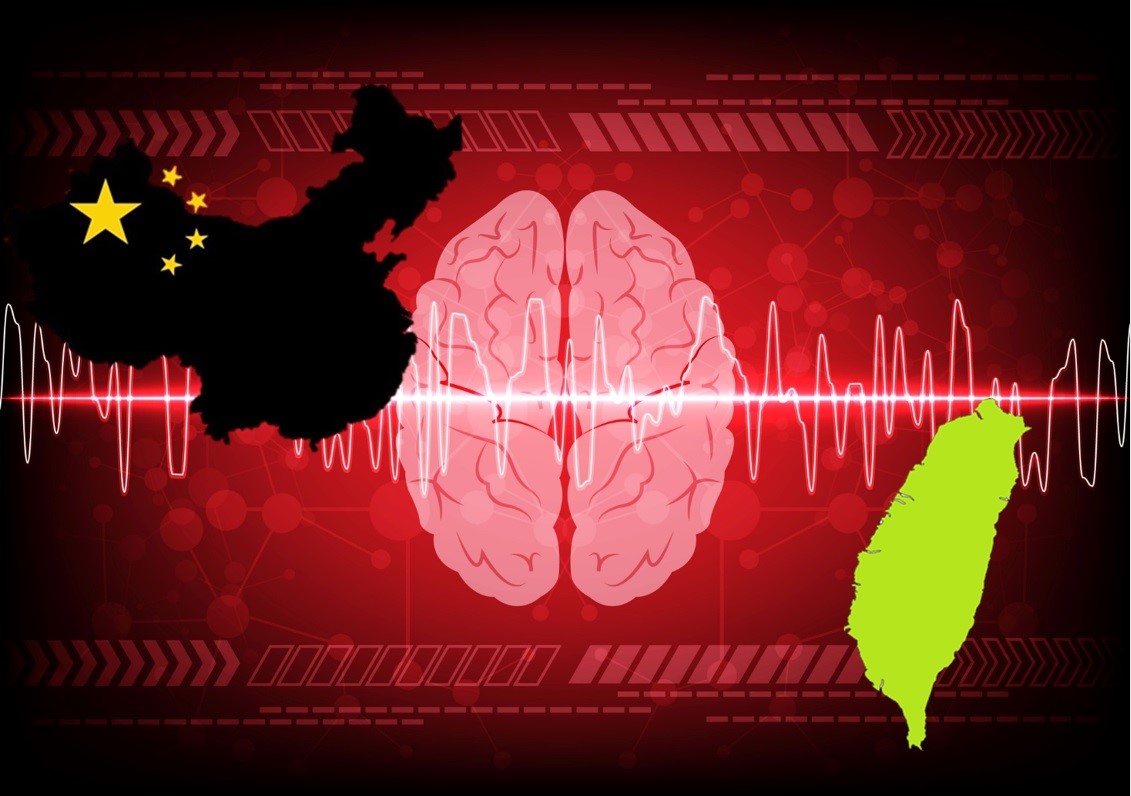In response to China’s growing infiltration efforts and the resulting threats to Taiwan’s national security, President William Lai convened a national security meeting on March 13. During the meeting, President Lai identified five national security threats stemming from China’s united front tactics and introduced 17 countermeasures to address them. Picture source: 總統府, March 13, 2025, Flickr, https://www.flickr.com/photos/presidentialoffice/54383751593.
Prospects & Perspectives No. 20
Law Against Law: Taiwan’s Response to China’s ‘Hidden Front’
By Ying-Yu Lin
In March 2025, Peter Mattis, a scholar from the U.S.-based Jamestown Foundation, and his research partner Cheryl Yu observed in an article titled “Chinese Communist Party Covert Operations Against Taiwan” that China continues to engage in both overt and covert political warfare operations against Taiwan. Moreover, they state, China continues to employ spies, local collaborators, and agents in Taiwan to conduct cognitive warfare aimed at undermining the morale and willpower of the Taiwanese people. The article also suggests that Taiwan should increase the severity of legal penalties to effectively deter such activities.
China’s hidden front
Since the start of the Chinese Civil War, the Chinese Communist Party (CCP), which eventually won the war, has been well aware of how to leverage united front tactics to create divisions among its enemies. Over time, this concept has generated derivatives such as the “Three Warfares” (public opinion warfare, psychological warfare, and legal warfare), cognitive warfare, and disintegration warfare. All these operations have one common goal: to weaken the adversary’s will to fight and, if possible, to cause their internal collapse, thereby reducing the costs of future military actions against them. Therefore, although China’s tactics for invading Taiwan have evolved with time and technological progress, its strategic objectives remain unchanged. The ultimate goal is to weaken Taiwan’s defenses through diverse means.
In response to China’s growing infiltration efforts and the resulting threats to Taiwan’s national security, President William Lai convened a national security meeting on March 13. During the meeting, President Lai identified five national security threats stemming from China’s united front tactics and introduced 17 countermeasures to address them. These include reinstating the court-martial system, investigating Republic of China (ROC) citizens holding Chinese identity documents, cautioning citizens about the risks associated with traveling to China, ensuring transparency in the travels of Taiwan’s civil servants and religious groups to China for exchanges, and strengthening guidance and management for entertainers pursuing careers in China. These are part of Taiwan’s countermeasures against the increasingly diversified united front tactics employed by China.
Taiwan is a democratic country under the rule of law. Following the announcement of the countermeasures relying on legal principles, a number of analysts argued that the countermeasures seriously violated freedom of speech. However, freedom of speech should have certain limitations. This is especially evident after the Chinese wife of a Taiwanese national was deported by the National Immigration Agency at the end of March for repeatedly making remarks on the Internet supporting China’s use of force to unify Taiwan. This incident sparked heated debates in Taiwan. The main issue at hand is how freedom of speech is defined and whether there are boundaries to it. Previously, traditional media like television stations and radio broadcasters followed established regulations. However, in the era dominated by new media platforms such as YouTube, TikTok, and Xiaohongshu (Little Red Book), their influence may surpass that of traditional media. Yet, there is insufficient manpower to review the content posted on these online platforms, highlighting a gap that current regulations have yet to address and define. It also gave spies new ways to commit crimes.
Reinstatement of the court-martial system
Based on the aforementioned reasoning, the adjustments to the Military Justice Law, which serves as the legal foundation for the court-martial system, represent a necessary step toward countering threats from China. In the past, the Military Justice Law was activated only during wartime. However, lack of regulations in more modern times resulted in a lack of effective regulations to deter lawbreakers within the military. The Military Justice Law has therefore been reinstated with adjustments meant to prevent actions that endanger national security, such as espionage and the leakage of confidential information.
After nearly a decade’ lapse, the court-martial system has returned with adjustments. It will need quite some time to re-establish the manpower, facilities, and other supporting measures for the system. However, recent cases of Chinese infiltration in Taiwan’s public sector, particularly within the armed services, reveal that many of the individuals involved did not receive commensurate rewards for the information they disclosed. They might have risked breaking the law for merely insignificant gains. At the same time, civilian courts may not fully grasp the implications of cases involving the leakage of military or government confidential information. Although such cases often attract significant public attention during prosecution, civilian court sentences tend to be lighter than expected, likely due to judges’ limited understanding of national security. The overly lenient penalties fail to serve as an effective deterrent for potential offenders and even indirectly encourage individuals with malicious intent to take a risk. These are the reasons why Taiwan must reinstate the court-martial system to address national security breaches.
Conclusion
Currently, in addition to actively employing gray zone tactics and traditional military operations to harass Taiwan, China is also using various media platforms and local collaborators to wage cognitive warfare against Taiwan. Furthermore, China is directing its intelligence operatives to adopt strategies such as extraction (recruiting defectors) and infiltration (dispatching spies) to effectively penetrate Taiwan’s public sector, posing a significant and present threat.
The revision of relevant regulations is not intended to establish Taiwan’s version of McCarthyism; rather, it seeks to keep up with China’s increasingly sophisticated infiltration methods and adapt to evolving threats. More importantly, the amendment of relevant regulations is expected to counter China’s recently intensified legal warfare by adopting the “law against law” approach. This is Taiwan’s preparation for a rainy day. By doing so, Taiwan hopes to caution citizens against violating regulations and deter potential offenders from crossing the line. These efforts represent Taiwan’s commitment to making legal adjustments in response to the challenges ahead.
Additionally, the laws need to be strengthened and expanded to include the regulation of cyberspace. Many modern information dissemination platforms operate on the Internet. How should views expressed in online videos be managed? These are areas where Taiwan’s legal framework must keep pace with the times.
(Dr. Lin is Assistant Professor, Graduate Institute of International Affairs and Strategic Studies, Tamkang University.)

